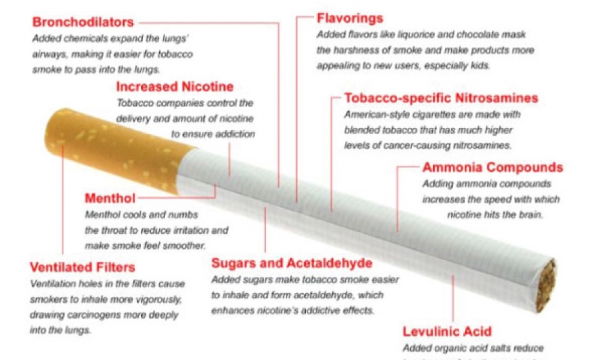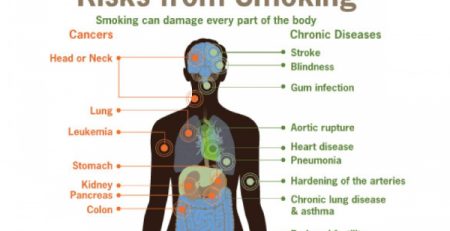Academic Information on Cigarettes are as Dangerous as Drug
Academic information about cigarettes which are as dangerous as other narcotics It is widely known that smoking is dangerous to health and causes death and diseases such as Chronic Obstructive Pulmonary Disease (COPD),
cardiovascular disease, lung cancer and other cancers in both primary smokers and secondhand smokers. In addition, smoking also causes: (1) economic loss due to smokers’ spending on cigarettes, (2) medical treatment expenses for smokers, and (3) risks from fire and car accidents. However, cigarettes are accepted drugs in Thai society even though cigarettes are
considered to be gateway or beginner drugs for other dangerous drugs. It is strange that cigarettes are currently considered different from other drugs only because cigarettes can be purchased easier and are sold legally.
1. Cigarette addiction compared with narcotic addiction
The definition of narcotics as defined by the World Health Organization (WHO) is something consumed and that causes non – stop consumption (dependence), and is that is gradually needed in greater quantity (tolerance). Finally, it causes both physical and mental sickness in a large portion of its users.
The Narcotics Act, B.E. 2522 (2009) defines narcotics as any form of chemical or substance which, upon being consumed whether orally, inhaled, smoked, injected or by other means, causes physiological or mental effect in a significant manner such as the need for continued increase dosage, withdrawal symptoms when deprived of the narcotic, strong physical and mental need of use, and resulting in deteriorated health in general. It also includes plants or parts of plants which are or give products as narcotics or may be used to produce narcotics and chemicals used for the production of such narcotics as specified by the Minister in the Government Gazette (5), but excludes certain formula of household medicines under the law on drugs which contain narcotic ingredients. According to the definitions stated above, cigarettes are a narcotic produced from dry tobacco leaf with the scientific name, “Nicotianatabacum”, which is the plant categorized as Solanaceae.1 This tobacco leaf is conditioned through chemical processes and has other substances added which contain or enhance “Nicotine”. The nicotine substance is more addictive than other ranked narcotics (heroin, cocaine, alcohol, and caffeine respectively).2 Table 1 shows that nicotine in cigarette smoke is absorbed quickly (in 10 seconds) through the blood into the brain. It stimulates the emission of dopamine, a neurotransmitters in the brain. The dopamine causes happy emotions and norepinephrin stimulates alertness, strength, concentration and reduces feelings of depression. When stopping smoking, the quantity of neurotransmitters decreases and happy emotions from cigarettes disappear. So smokers experience feeling the need to smoke from both the physical and mental effects and they cannot stop smoking (dependence).
For this reason, smokers seek to have cigarettes to smoke (craving) in order to reduce withdrawal symptoms such as being anxious, easily irritable, distracted, often hungry and gaining weight. After smoking for some time, smokers require more nicotine in order to get the same effects as earlier smoking (tolerance). Moreover, cigarettes are also thought to have mental effects in terms of attitude, believe, feeling (smoking viewed as relieving stress and helping to reduce worry), building concentration, facilitating social interaction, and building relationships through a shared smoking experience in the workplace. Public health authorities in the United States have classified cigarettes as dangerous narcotics. However, Thailand has not considered cigarettes as narcotics highly risky to health, but as legal narcotics.












